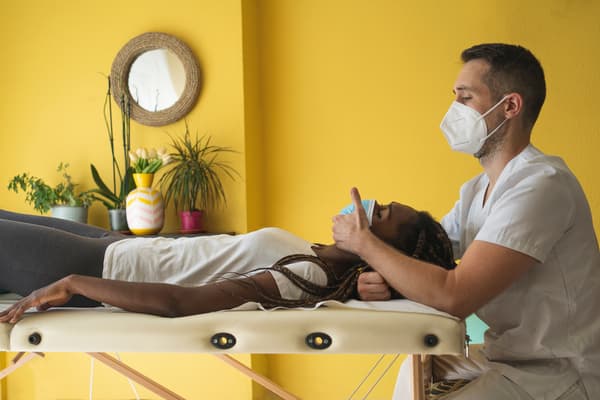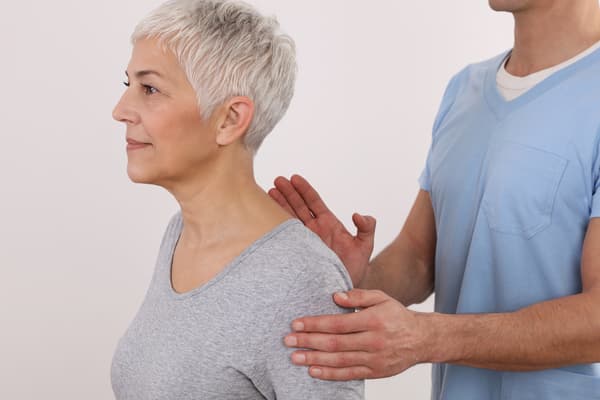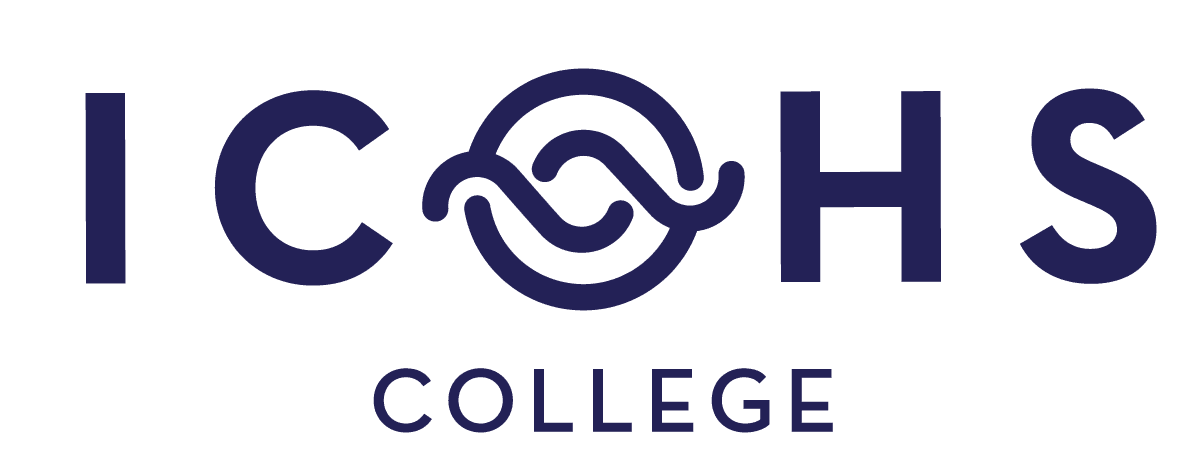What does a holistic practitioner do, really? Put simply, holistic practitioners provide comprehensive treatments covering the physical, mental, and spiritual aspects of health.
While holistic practices are often confused with alternative treatments, this isn’t exactly the case. Holistic medicine emphasizes an integrative approach, combining complementary and alternative medicine with traditional treatments.
Today, the industry is booming. Different fields are experiencing growth at unprecedented rates. According to the Bureau of Labor Statistics (BLS), employment among massage therapists will increase by 32 percent over the next ten years. Chiropractors are also experiencing increasing rates of employment, with over 18,000 new jobs expected to hit the market by 2030.
Below, we’ll explore what it means to practice holistic health, the responsibilities involved, salary expectations, and the training required.
[toc]What Does a Holistic Health Practitioner Do?

Holistic health practitioners apply treatments that promote the overall health and wellness of their patients. Instead of focusing on specific physical symptoms, holistic doctors prioritize a whole-body approach, targeted towards both the body and mind.
Holistic health practices cover many different disciplines, including massage therapy, yoga, osteopathy, chiropractic therapy, herbal medicine, acupuncture, Tai Chi, and more.
Although holistic practitioners may use alternative medicine, that does not exclude them from recommending traditional treatments. In fact, the most successful holistic health practitioners are able to incorporate traditional practices into a holistic treatment plan.
While requirements vary from state to state, you’ll find that most holistic health practitioners must receive formal education and licensing before they can begin practicing. For instance, licensed naturopathic doctors must graduate from a federally accredited medical school specializing in naturopathy. These programs take roughly four years to complete.
Key Responsibilities of Holistic Health Practitioners
Holistic practitioners have a number of responsibilities they must fulfill for each patient, all of which center around treating their overall health in place of specific symptoms. Below, you’ll find a few key responsibilities of holistic health practitioners:
- Collect information about the patient’s health history to build a comprehensive profile
- Assess every aspect of the patient’s health including their physical, spiritual, and mental wellbeing
- Cooperate with the patient to develop a treatment plan based on their health goals
- Track the patient’s progress and make any necessary alterations to their treatment plan
How Does Holistic Healthcare Differ From Clinical Healthcare?
Holistic approaches differ from clinical healthcare in a few different ways. For starters, traditional clinicians typically focus on alleviating symptoms and curing diseases, if possible. Meanwhile, holistic health practitioners dive deeper into root causes to improve the overall health of the patient. From there, they can work to resolve complications and prevent them from resurfacing further down the line.
Clinical healthcare also tends to revolve around a one-sided interaction, where the practitioner develops a treatment plan, and the patient follows their direction. But holistic health involves a cooperative effort between doctor and patient.
The aim is to empower patients to take charge of their own health over time without strictly relying on their doctor’s guidance. This aspect, in particular, has helped the practice gain high levels of popularity.

Another difference worth noting revolves around the approach. Traditional clinical settings focus entirely on Western medicine. Meanwhile, holistic health combines this approach with alternative treatments. This integrative method allows practitioners to entertain alternatives to expensive drugs and surgeries when possible.
What Are the 5 Areas of Holistic Health?
Although the prime objective of holistic care is to treat the whole person, the practice can be categorized into more specific areas of focus. The 5 major areas of holistic medicine are:
- Physical health and wellness (ex. Maintaining healthy diets and physical activity)
- Cognitive and mental health (ex. Maintaining thinking abilities)
- Emotional well being (ex. Resolving issues of stress or anxiety)
- Social health (ex. Fostering healthy relationships)
- Spiritual healthcare (ex. Engaging in spiritual activities)
Certain fields such as chiropractic care and massage therapy primarily focus on physical treatment methods. Other fields such as ayurvedic medicine utilize lifestyle changes that cover all the areas of holistic health to maintain a patient’s overall health.
The holistic medicine industry is host to a wide variety of specialties. Some of the most popular titles include:
Role – Average Annual Salary (Source: BLS unless specifically linked)
- Chiropractor – $83,010
- Massage Therapist – $49,790
- Acupuncturist – $97,270
- Nutritionist – $62,250
- Ayurvedic Practitioner – $40,000
- Yoga Teacher – $48,830
- Aromatherapist – $51,826
- Naturopathic doctor – $95,642
Salary and Career Outlook
Because of the variety that exists within the holistic health space, salaries vary significantly. With average annual earnings of $83,010, chiropractors remain some of the highest-paid professionals in the industry. On the other hand, salaries among massage therapists fall on the lower side of the spectrum, around just $49,790 per year.
That said, there are opportunities for practitioners to make more than national statistics project. Location, years of experience, and specialty area all have a major impact on earnings.
For instance, massage therapists can find the highest salaries in Alaska, Washington, and Massachusetts and the lowest salaries in Georgia, Louisiana, and Rhode Island. Similarly, chiropractors earn the highest salaries in Washington, Missouri, and Oklahoma. States like Utah, Montana, and Kansas tend to pay less.
Opportunities are also increasing. Zippia projects approximately 62,000 new holistic health careers from 2018 to 2028. According to the BLS, this boom reflects a growth rate of 26%, which is much higher than the average growth of all other industries.
If you’re looking for inspiration, look to major names in the field, like Dr. Kristen Poe. Poe first began her career working in the pharmaceutical industry. A decade later, she decided to shift to holistic practice. Today, she remains a popular practitioner of Naprapathy, a form of bodywork focused on the manual manipulation of spinal and connective tissue.
How Do You Become a Holistic Health Practitioner?
Becoming a holistic health practitioner involves deciding which branch of medicine you’d like to practice, finding the right training program, and acquiring the necessary licenses.
Finding the Right Training Program
While traditional doctors must first complete a bachelor’s degree before applying to medical school, holistic practitioners tend to have more options. Massage therapists, for instance, are typically only required to graduate from a certificate or degree program and earn the necessary licensing for their state.
Related: How to become a massage therapist in 2022
Once you’ve decided which role you want to pursue, you’ll need to find an accredited training program.
Another factor you’ll need to consider is whether the program is offered online or on-campus. Online programs may be necessary for students who must tend to personal or professional responsibilities while attending school.
On the other hand, an on-campus education may be necessary for individuals pursuing more tactile careers like yoga or acupuncture.
The program duration is also worth considering. Those looking to enter the workforce as soon as possible should be selective with their application process. You can contact the schools directly to learn more about how long it will take to complete your chosen program.
From there, you’ll need to compare tuition fees and financial aid options. Individuals in need of financial assistance may have a more limited selection of schools to work with.
Licensing Requirements for Holistic Health Practitioners
Once you’ve completed your education and received your certification degree, you’ll need to secure all necessary licenses to practice in your state. It’s best to inquire about certification with your school as it may be integrated with your training program.
Other nationwide organizations offer licensing and certification for holistic practitioners like the American Holistic Health Association (AHHA) and the National Certification Board for Therapeutic Massage and Bodywork (NCBTMB).
What Are the Pros and Cons of Holistic Medicine?
The holistic health industry is booming, and for good reason. That said, there are a few things to consider before deciding to pursue a career in the field. Check out the list below to learn more about the pros and cons of becoming a holistic practitioner.
The Advantages of Holistic Medicine
- Holistic medicine offers more specialized treatment to patients.
- Holistic practitioners allow patients to play an active role in their own treatment, empowering them to take control of their own health and wellness.
- Holistic treatments produce greater long-term results by targeting the root of ailments, as opposed to temporarily alleviating symptoms.
The Disadvantages of Holistic Medicine
- For holistic medicine to be effective, patients need to be open and willing to participate in their own treatment.
- Holistic treatments receive less coverage by insurance companies and therefore can be more costly.
Frequently Asked Questions

What is Holistic Medicine?
Holistic medicine focuses on all aspects of a patient’s health instead of specific symptoms. This integrative approach is based on the following principles:
All humans have the capacity to naturally heal
The health of the whole person is more important than specific diseases
The healing process is a cooperative effort between the patient and the doctor
A mind-body connection must be nurtured
Seeking the root cause of issues is more important than simply alleviating symptoms
What is the Difference Between Holistic and Traditional Western Medicine?
Traditional western treatments are focused on alleviating symptoms while holistic therapies seek out the root causes of health issues. While a traditional doctor will prescribe treatments for their patients, a holistic doctor empowers patients to take control of their own health.
In What Areas Can You Practice Holistic Medicine?
The five areas of holistic medicine are physical health and wellness, cognitive and mental health, emotional well-being, social health, and spiritual healthcare. Ayurvedic practitioners cover all of these areas by prescribing lifestyle changes for their patients. Other holistic health careers like massage therapists and acupuncturists focus more on physical aspects.
How Long Does it Take to Become a Holistic Health Practitioner?
The amount of time it takes to start a career in holistic medicine varies significantly depending on what area you want to pursue. While aspiring massage therapists can complete their programs in as little as six months, chiropractors will spend years completing their post-secondary education. Other factors like your location and ability to commit to a full-time program also affect how long it takes to break into the field.
Conclusion
As holistic medicine continues to gain recognition, practitioners will enjoy a number of new opportunities. You can start your journey towards a successful career at ICOHS College. Our Professional Massage Therapist certificate program is a California Massage Therapy Council (CAMTC) approved school as recognized by the state of California. Program courses include the following subjects:
- Fundamentals of Massage
- Kinesiology and Client Assessment
- Anatomy and Deep Tissue
- Eastern Modalities
- Western Modalities
- Body Systems, Pathology, and Special Populations
- Career Development
Scholarships and title IV funding are also available to help students cover the cost of tuition. Call us to speak to one of our representatives (858) 581-9460 or contact us via email for more information on financial assistance. Financial aid is available to those who qualify.
Students attending ICOHS College will have full access to our career counseling program. They’ll also receive lifetime job placement assistance after graduation.
ICOHS College is accredited by the ACCET (Accrediting Council for Continuing Education, accet.org). To learn more about ICOHS College accreditations and licenses, visit our accreditation page.










